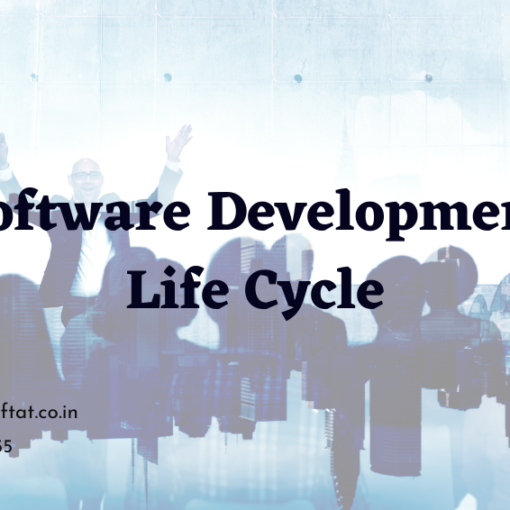
What is SAP?
SAP (Systems Applications and Products in Data Processing) is an acronym for Systems Applications and Products in Data Processing. By definition, SAP is both the name of the corporation and the name of the ERP (Enterprise Resource Planning) software. SAP Software is a worldwide software company based in Europe that was created in 1972 by Wellenreuther, Hopp, Hector, Plattner, and Tschira. They create software to help businesses manage their operations and client connections.
The SAP system is made up of several completely integrated modules that cover almost every aspect of business management.
SAP is the market leader in enterprise resource planning software. SAP has over 140,000 installations around the world, over 25 industry-specific business solutions, and over 75,000 customers in 120 countries as of 2010. Oracle, Microsoft Dynamics, and other SAP Software competitors are available on the market.
SAP, like any other ERP system, includes a number of modules that are meant to expedite business operations in every area of your organization, linking not just your employees but also their ideas.
Human resources, finance, and sales are just a handful of the SAP modules available. Any module may be purchased based on your company’s needs, and it would be difficult to discover one that does not meet those criteria. SAP can handle almost all divisions inside your company, transforming the way you do business. ERP Software
How SAP is useful for business
Data Centralization
SAP centralises data from many processes and business operations in a single location. This facilitates the exchange of data and information across business units and departments. Sales, inventory, finance, manufacturing, and human resources departments can all access information from other departments and convey their needs effectively. This also aids in the reduction of communication mistakes and delays, as well as improving overall efficiency. Effective communication and data interchange among all departments is critical to a company’s performance, and SAP, as an enterprise resource planning software, facilitates this communication and information exchange.
Automation
SAP allows procedures to be automated and processes to be optimized. Data from processes such as account administration, order management, and vendor management is automatically routed according to the approval and rejection policies set in the system. Employees may focus on more productive duties while the ERP system tackles the monotonous ones, allowing businesses to become more efficient.
Accessibility
SAP can be installed on-premises or in the cloud. As a result, SAP ERP is extremely adaptable and accessible. Many of SAP’s services and applications are also available as mobile apps. SAP is compatible with a wide range of operating systems and devices, including Windows, Linux, Android, iPhones, and Mac. As a result, as a user, you can access the ERP from anywhere at any time. SAP’s best-in-class security measures ensure that any organization’s private data is always safe, even when accessed via mobile apps.
Visualization
SAP’s reports and dashboards capability allows you to access all of the relevant data pointers in real-time in an easy-to-understand style. When compared to big data volumes, graphs and charts are easier to interpret and navigate. This allows you to make quick decisions about your future steps and makes comprehending the procedures and related challenges much easier.
Globalization
SAP offers support for a wide range of geographical areas. SAP, as an enterprise platform, supports all major currencies around the world, making it ideal for businesses with global operations.
Overall revenue growth
SAP’s features improve process efficiency, free up personnel to focus on more critical duties, and provide a comprehensive view of operations, making it easier to analyze difficulties. An improvement in efficiency leads to a rise in overall revenue and profit for a company.
Why SAP ERP is best
SAP ERP stands out as one of the best ERP solutions for organizations due to the following reasons:
- Comprehensive Functionality: SAP ERP offers a comprehensive suite of integrated modules that cover a wide range of business functions, including finance, supply chain management, human resources, sales, and more. This all-encompassing functionality provides organizations with a holistic and unified system to manage their operations efficiently.
- Industry-Leading Solution: SAP ERP is a market leader in the ERP space, backed by decades of industry expertise and continuous innovation. It is trusted by numerous organizations across various industries worldwide, making it a reliable and proven choice for businesses of all sizes.
- Scalability and Flexibility: SAP ERP is highly scalable, allowing organizations to adapt and grow as their business requirements evolve. It caters to the needs of both small businesses and large enterprises, providing the flexibility to customize and configure the system to align with specific industry and organizational requirements.
- Integration Capabilities: SAP ERP seamlessly integrates with other SAP solutions, such as SAP CRM, SAP SCM, and SAP BI, creating a unified ecosystem that facilitates data sharing, process automation, and collaboration across different departments. This integration capability ensures smooth information flow and enables organizations to leverage the full potential of their ERP system.
- Robust Analytics and Reporting: SAP ERP provides robust analytics and reporting capabilities, allowing organizations to gain real-time insights into their operations, monitor key performance indicators, and make data-driven decisions. The availability of customizable dashboards, reports, and drill-down functionalities empowers users to analyze data from various perspectives and extract meaningful insights.
- Global Reach and Localization: SAP ERP supports multiple languages, currencies, and legal requirements, making it suitable for organizations operating globally. It helps businesses comply with local regulations, manage multi-country operations efficiently, and consolidate financial and operational data across different regions.
- Continuous Innovation: SAP invests heavily in research and development, constantly enhancing and upgrading its ERP solutions to keep pace with technological advancements and evolving business needs. Regular updates and new releases ensure that organizations using SAP ERP have access to the latest features, security enhancements, and industry best practices.
These reasons collectively make SAP ERP the best choice for organizations looking for a robust, scalable, and industry-leading ERP solution that can drive efficiency, optimize processes, and support their growth and success in the long run.
Benefits of SAP ERP
- Process Integration and Efficiency:
- Centralized Data: SAP ERP consolidates data from different departments into a single database, eliminating data redundancy and ensuring data integrity.
- Seamless Information Flow: It enables real-time information sharing and collaboration across departments, promoting faster and more efficient decision-making.
- Standardized Processes: SAP ERP provides standardized processes, workflows, and best practices, reducing process variations and improving overall efficiency.
- Automated Tasks: It automates routine tasks, such as data entry, document generation, and report generation, freeing up employees’ time for more value-added activities.
- Enhanced Visibility and Reporting:
- Real-time Insights: SAP ERP offers real-time data and analytics, enabling organizations to monitor performance, track key performance indicators (KPIs), and make data-driven decisions.
- Customizable Dashboards and Reports: Users can create personalized dashboards and reports, visualizing data in meaningful ways that align with their specific roles and responsibilities.
- Drill-Down Capabilities: It allows users to drill down into detailed information, helping them identify trends, analyze root causes, and address issues proactively.
- Improved Supply Chain Management:
- Demand Planning: SAP ERP facilitates demand forecasting and planning, helping organizations optimize inventory levels, reduce stock-outs, and improve customer satisfaction.
- Efficient Procurement: It streamlines procurement processes, automating purchase orders, supplier management, and invoice verification, leading to cost savings and improved supplier relationships.
- Effective Inventory Management: SAP ERP enables accurate inventory tracking, demand-driven replenishment, and inventory optimization, minimizing carrying costs and improving order fulfillment.
- Financial Management and Control:
- Financial Integration: SAP ERP integrates financial processes, including general ledger, accounts payable, accounts receivable, and asset management, providing a holistic view of financial data.
- Compliance and Risk Management: It helps organizations adhere to regulatory requirements, internal controls, and financial reporting standards, reducing the risk of non-compliance and financial errors.
- Cost Control: SAP ERP enables cost tracking, budgeting, and variance analysis, allowing organizations to control costs, identify cost-saving opportunities, and improve profitability.
- Human Resource Management:
- Workforce Management: SAP ERP facilitates efficient management of employee data, such as payroll, attendance, benefits, and performance management, streamlining HR processes and improving employee satisfaction.
- Talent Acquisition and Development: It supports recruitment, onboarding, training, and career development, helping organizations attract, retain, and develop top talent.
- Organizational Planning: SAP ERP assists in organizational structure design, succession planning, and workforce analytics, enabling organizations to align their workforce with strategic goals.
- Customer Relationship Management (CRM):
- Customer Data Centralization: SAP ERP integrates customer data across sales, marketing, and customer service, providing a single view of customers and improving customer interactions.
- Sales and Service Optimization: It supports sales order management, customer inquiries, complaints, and service requests, enhancing customer satisfaction and loyalty.
- Marketing Campaign Management: SAP ERP enables targeted marketing campaigns, lead management, and customer segmentation, helping organizations acquire and retain customers effectively.
Know more about the benefits of SAP ERP
SAP ERP system benefits
- Functionality: The SAP ERP system provides software solutions that cover all the commercial processes and transactions used in a company.
- Flexible structure: The SAP ERP system provides a flexible system structure, as flexibility is an important aspect of every department.
- Real-time integration: The SAP ERP system provides all information related to real-time integration required by the user.
- User-friendliness: The SAP ERP system provides a uniform graphical user interface for all application areas.
- SAP can Fit Any Size Business (From Small Companies to Fortune 500 Companies)
- It is Also Ideal for Any Business
- When Compared to Other ERP Systems, SAP Offers the Quickest Financial Payback and Shorter Implementation Time
- SAP Usually Requires Less Customization Than Other ERP Systems






4 thoughts on “Why SAP ERP is best”